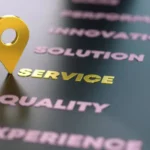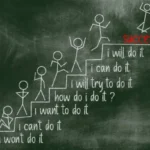What Are Communication Skills?
Let’s start at the beginning. Communication skills are the tools we use to share ideas, thoughts, and feelings. They include speaking, listening, writing, body language, and even silence. Whether you’re at work, school, or just talking with friends, communication is the bridge that connects you to others.
Verbal vs Non-verbal Communication
We often think communication is all about talking, but that’s just the tip of the iceberg. Verbal communication includes the words you say, while non-verbal cues—like facial expressions, gestures, and posture—can say even more than words. A nod, a smile, or even silence can speak volumes.
Why Communication Skills Matter
Good communication isn’t just nice to have—it’s essential. It helps you build relationships, resolve conflicts, express yourself clearly, and succeed professionally. Think about it: ever had a brilliant idea that no one understood? That’s a communication gap you can fix.
The Foundation of Great Communication
Active Listening: The Secret Sauce
Want to become a better communicator overnight? Start listening more. Active listening means paying attention not just to words but also to tone, emotion, and intent. Put the phone down, make eye contact, and show genuine interest.
Emotional Intelligence in Conversation
Being aware of your emotions—and those of others—is key. Emotional intelligence helps you respond rather than react, stay calm under pressure, and understand unspoken messages.
Barriers to Effective Communication
Internal Barriers
These are personal hang-ups like fear, low confidence, assumptions, or emotional triggers. Ever started a conversation already thinking it’ll go badly? That’s an internal barrier doing its job.
External Barriers
Noise, distractions, bad connections, or even cultural differences—these are things outside your control but still manageable with awareness and preparation.
Tips to Improve Verbal Communication
Clarity and Brevity
Be clear. Be brief. Say what you mean and mean what you say. Rambling loses people fast, so stick to the point and use simple words.
Tone and Pitch Matter
Your tone can say, “I care,” or “I don’t have time for this.” Be mindful. A friendly tone builds bridges, while a harsh one can burn them.
Mastering Non-verbal Communication
Body Language Hacks
Open arms suggest openness, while crossed arms scream “I’m not listening.” A slight lean forward shows interest, and mirroring the other person’s movements builds rapport naturally.
Eye Contact and Facial Expressions
Eye contact builds trust—but don’t stare! Facial expressions should match your message. Smiling while giving bad news? Not a good look.
How to Improve Listening Skills
Stop Thinking Ahead
We often think about what we’ll say next instead of listening. Stay present. You’ll be amazed at what you actually hear when you stop planning your comeback.
Respond, Don’t React
Reacting is emotional and impulsive. Responding is thoughtful and calm. Pause before you speak—especially in sensitive conversations.
Writing to Communicate Better
Practice Structured Writing
Use short paragraphs, bullet points, and headers. Clear writing reflects clear thinking. Whether it’s an email or social post, organize your thoughts before hitting send.
Tone in Written Communication
Without tone of voice, messages can easily be misinterpreted. Be polite, add emojis when needed, and avoid all caps (unless you’re yelling, which you shouldn’t be).
Practice Makes Perfect
Engage in Conversations Daily
Small talk is big training. Practice in line at the store, chat with a colleague, or join discussions online. The more you talk, the better you get.
Join Speaking Clubs like Toastmasters
Organizations like Toastmasters International offer structured environments to grow your public speaking and leadership abilities. It’s like a gym for your communication muscles.
Reading and Watching Content
Read Books and Articles
Reading expands your vocabulary and exposes you to new ideas. Pick up books on communication, psychology, or leadership. Authors like Dale Carnegie or Simon Sinek are great starts.
Watch TED Talks or Podcasts
Content like TED Talks or podcasts on communication can provide new insights. It’s learning on the go—while you commute, clean, or exercise.
Using Technology to Boost Skills
Apps for Language and Speech
Tools like Grammarly, Speechling, and HelloTalk can help you refine how you speak and write. Even YouTube channels can serve as virtual coaches.
Online Courses and Tools
Platforms like Coursera, Udemy, or LinkedIn Learning offer top-rated courses on communication skills. Many are even free!
Seeking Feedback and Reflection
Constructive Criticism Is Gold
Ask friends, mentors, or coworkers, “How did I come across?” Honest feedback might sting, but it’s the fastest way to grow.
Self-reflection Through Journaling
Write about your daily conversations. What went well? What flopped? Self-awareness is a powerful tool in communication.
Adapting to Different Communication Styles
Identifying Personality Types
Some people love directness. Others prefer a warm-up. Understanding personality types like DISC or MBTI helps you adjust your style so your message lands better.
Matching Energy and Tone
Mirror the other person’s energy. If they’re laid-back, don’t come in hot. If they’re excited, show some enthusiasm too.
Communicating in the Workplace
Clear Expectations and Updates
Bosses and teams hate guesswork. Be direct, offer updates, and confirm understanding. It’s the glue that holds projects together.
Handling Difficult Conversations
Whether it’s conflict or constructive feedback, stay calm and factual. Focus on the issue, not the person, and always offer solutions.
Developing Public Speaking Skills
Overcoming Fear of the Stage
Everyone gets nervous. Start small: speak in meetings, record yourself, or talk in front of friends. It gets easier every time.
Building Confidence Through Practice
Rehearse out loud. Time yourself. Know your material. The more you practice, the more your confidence grows—and it shows.
Common Mistakes to Avoid
Talking Too Much
Silence is golden. Let others talk. Listen more than you speak. That’s where connection lives.
Not Paying Attention to Reactions
If someone looks confused or bored, change your approach. Communication is a two-way street. Read the road signs.
Conclusion
Developing strong communication skills isn’t rocket science—it’s a journey of self-awareness, practice, and empathy. Whether you’re leading a team, pitching a business, or just trying to connect with people better, communication is your greatest asset. Start small, keep practicing, and you’ll see massive results over time. And remember—it’s not about being perfect, it’s about being real.
FAQs
1. What’s the quickest way to improve communication skills?
Start by listening more and practicing small talk daily. Listening is 50% of communication!
2. Can introverts become great communicators?
Absolutely! Introverts often excel at thoughtful, deep conversations. It’s not about volume—it’s about value.
3. What apps help with speaking confidence?
Apps like Orai, Speechling, and even Zoom (for mock sessions) can help you practice and build confidence.
4. How long does it take to improve communication skills?
It varies, but with daily practice, you can notice changes within weeks. Consistency is key.
5. Do I need to join a class to get better?
Not necessarily. Books, podcasts, online courses, and daily practice can work wonders on their own.





